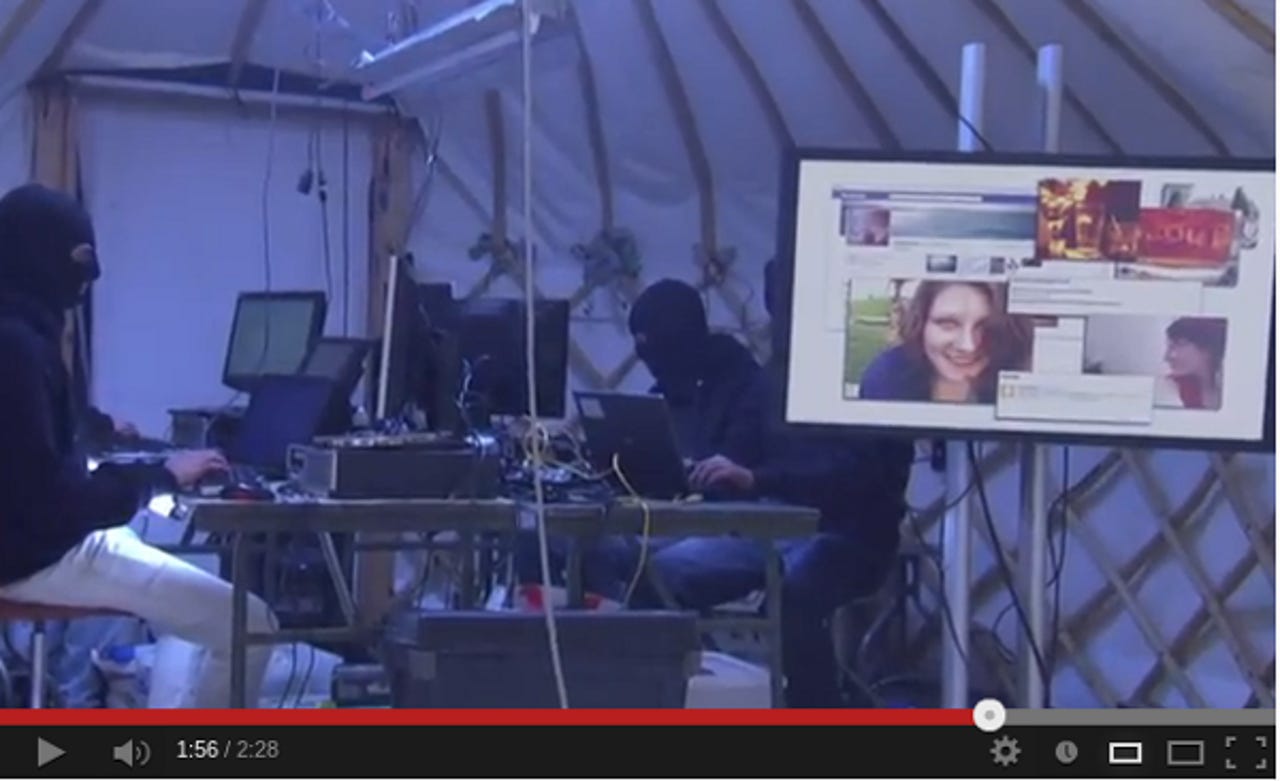Raytheon Riot: Defense spying is coming to social networks

According to the Guardian, multi-national security company Raytheon has developed Rapid Information Overlay Technology (Riot), a big data, social-networking spy program.

With Riot, a user -- typically a government official -- will be able to pull together your life-history; your relationships with other people; and the places where you're most likely to be found. These tracking profiles are based not just on obvious information, such as your listing of a hometown on Facebook or FourSquare GPS location data, but also from "invisible" location metadata from digital photographs.
The Guardian reports that Jared Adams, a spokesman for Raytheon's intelligence and information systems department, told them via email that, "Riot is a big data analytics system design we are working on with industry, national labs and commercial partners to help turn massive amounts of data into usable information to help meet our nation's rapidly changing security needs. Its innovative privacy features are the most robust that we're aware of, enabling the sharing and analysis of data without personally identifiable information [such as social security numbers, bank or other financial account information] being disclosed."
Officially, Jon Kasle Raytheon's VP of corporate public relations, would only tell ZDNet that, "Raytheon, as a leader in cybersecurity, offers advanced capabilities to government customers. We're focused on providing them the best available solutions that meet their constantly evolving requirements."
It appears Raytheon has been working on Riot since 2010. Raytheon is expected to show the program off to its potential customers in April 2013.
This story has some people upset. The Guardian itself called Riot, a "Google for spies;" the Telegraph called it "stalking software;" and Engadget labeled it "online stalking."
Me? I call it business as usual.
Sure, the passage of bills like CISPA (Cyber Intelligence Sharing and Protection Act) would make it easier for private companies to share your data with the government, but much of your personal data is already out there ready for the taking.
Here's the simple truth: If you put your personal details on the Internet, especially on the social networks, it doesn't require any fancy defense contractor software to track your every move. The social networks themselves can do it. Advertisers can do it. Anyone with a lick of computer sense can do it.
If you want to keep your private life private, you have to keep it off the Internet. It's really that easy.
To quote from a brilliant commercial about Internet privacy from Febelfin, the Belgian Financial Sector Federation, "Your entire life is online. And it might be used against you. Be vigilant." Exactly. You may not like having people, companies or the government spying on you. You may not think it's fair. But, it's the way today's world works and you need to keep that in mind when you put information on the Internet.
Related Stories: